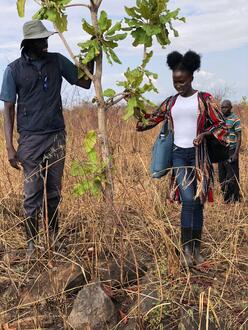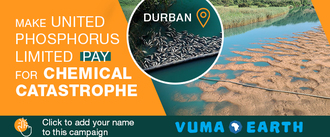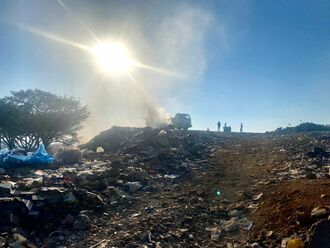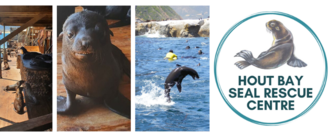-
Replace Wi-Fi, 4G & 5G with Faster, Safer & Healthier Li-Fi Alternative5G represents an international environmental crime against humanity and our planet as per this Published Scientific Research on 5G, 4G Small Cells, Wireless Radiation and Health: https://ehtrust.org/scientific-research-on-5g-and-health/ Has anyone considered conducting deep research into how 5G is going to affect our Bees and Birds and the critical eco-system services they provide? "RADIATION FROM CELLPHONES, WI-FI, IS HURTING THE BIRDS AND THE BEES; 5G MAY MAKE IT WORSE": https://www.newsweek.com/migratory-birds-bee-navigation-5g-technology-electromagnetic-radiation-934830 Internationally, municipalities are calling to halt 5G: https://ehtrust.org/international-actions-to-halt-and-delay-5g/. In Switzerland, the cantons of Geneva, Vaud, and Neuchatel have blocked the deployment until safety is proven. (Read the full list here: https://ehtrust.org/international-actions-to-halt-and-delay-5g/) Dr Devra Davis provides "The truth about mobile phone and wireless radiation": https://www.youtube.com/watch?v=BwyDCHf5iCY Telecommunications Minister Siyabonga Cwele announced in September 2013 that "South Africa had made agreements allowing cellphone networks to release 5G in South Africa: https://www.businessinsider.co.za/south-africa-will-only-get-5g-in-2020-telecommunications-minister-siyabonga-cwele-says-2018-9" with ZERO reference made to how this radioactive hazard will affect people's health and the environment at large? Was that given ANY thought? South Africans have NOT been accurately and truthfully informed about the extensive health risks associated with exposure to 5G radiation, yet, Vodacom originally announced in July 2018 that "5G will drive massive fiber deployment": https://brandspurng.com/2020/05/05/vodacom-launches-5g-in-south-africa/ ? Interestingly, the link to their original announcement has since been "archived": https://www.ee.co.za/article/5g-will-drive-massive-fibre-deployment.html On 26th February 2019 another announcement arrived "Rain and Huawei launch South Africa’s first commercial 5G network": https://businesstech.co.za/news/mobile/301934/rain-and-huawei-launch-south-africas-first-commercial-5g-network/ Where was the "protection of the people and environment" by the South African Government? Was ANY research undertaken regarding the dangers of this 5th Generation Technology and the risks it poses on Human and Environmental well-being? "Top 20 Facts About 5G": https://ehtrust.org/key-issues/cell-phoneswireless/5g-internet-everything/20-quick-facts-what-you-need-to-know-about-5g-wireless-and-small-cells/ 5G poses an environmentally unethical threat to South Africa and the world at large and potentially contravenes and violates people's Human Rights to living in a safe radiation and hazard-free environment and potentially violates our rights to privacy and more as as Igan Max explains in this 2019 Global 5G WiFi Will Blanket The Earth in a mosaic of "cells" - What you NEED to KNOW!: https://www.youtube.com/watch?v=MoCGoXoWNes, documentary. As per this notification: "Scientists Keep Warning About The Dangers of 5G; Will We Listen?: https://www.gaia.com/article/5g-health-risks-the-war-between-technology-and-human-beings" "Over 180 scientists and doctors in almost 40 countries are warning the world about 5G health risks and have recommended a moratorium on the roll-out of the fifth generation, 5G, until potential hazards for human health and the environment have been fully investigated by scientists independent from industry." Published on 2nd May 2019 this documentary reveals the 5G existential threat to humanity in a way we never imagined possible: "5G Apocalypse - The Extinction Event": https://vimeo.com/328304571 "Brussels has been the first Major City to say NO to 5G": https://imherald.com/2019/04/05/brussels-becomes-first-major-city-to-ban-5g-wireless-connection/ Why is America concerned about 5G? https://share.america.gov/why-is-america-concerned-about-5g/ Other related 5G facts: The roll out of 5G wireless service is 'a massive health experiment,' public health expert warns as cell companies install 800,000 towers across the US: https://www.dailymail.co.uk/health/article-5784487/The-roll-5G-wireless-service-massive-health-experiment-public-health-expert-warns-a.html Wireless wake-up call | Jeromy Johnson | TEDx Berkeley: https://www.youtube.com/watch?v=F0NEaPTu9oI 5G CELL PHONE RADIATION: HOW THE TELECOM COMPANIES ARE LOSING THE BATTLE TO IMPOSE 5G AGAINST THE WILL OF THE PEOPLE BY CLAIRE EDWARDS: https://williambowles.info/2019/10/07/5g-cell-phone-radiation-how-the-telecom-companies-are-losing-the-battle-to-impose-5g-against-the-will-of-the-people-by-claire-edwards/ WATCH: Debate raging on link between 5G technology, coronavirus pandemic: https://www.iol.co.za/capetimes/news/watch-debate-raging-on-link-between-5g-technology-coronavirus-pandemic-45124913 CORONAVIRUS HOAX: Fake Virus Pandemic Fabricated to Cover-Up Global Outbreak of 5G Syndrome: http://themillenniumreport.com/2020/03/coronavirus-hoax-fake-virus-pandemic-fabricated-to-cover-up-global-outbreak-of-5g-syndrome/ Bigger Than Snowden. Neuro Weapons. Directed Energy Weapons. Mind Control. Targeted Individuals. 5G: https://stillnessinthestorm.com/2019/10/bigger-than-snowden-neuro-weapons-directed-energy-weapons-mind-control-targeted-individuals-5g/ 5G GIGANTIC HEALTH HAZARD. DR. BARRIE TROWER AND SIR JULIAN ROSE: https://www.youtube.com/watch?v=TZ3t6n2SkUY MUST WATCH - The SCARIEST 3-1/2 Minutes EVER! - 5G will Weaponize Everything: https://www.youtube.com/watch?v=P5AYRWvjiVg30 of 100 SignaturesCreated by Cheri Rubens
-
Shell gas study threatens SA's Wild Coast.For decades, South Africa's Wild Coast has been a pristine and untouched coastline vital to the biodiversity of the Eastern Cape and Kwa-Zulu Natal. Such a plan will impact impoverished communities hardest by devastating fish populations in shallow ocean water and the Wild Coast and Eastern Cape rivers. It will also devastate whale and dolphin populations who will beach and become disorientated due to the constant seismic blasting. Please support this petition before it is too late.2,635 of 3,000 SignaturesCreated by Matthew De Bie
-
Save the Shea Nut TreeIt is an integral part of my community. In the fight against climate change, it is so vital that we look at solutions that benefit us all.884 of 1,000 SignaturesCreated by Mustafa Gerima
-
La déforestation dans la province de Mai-Ndombe en RDCL'importance est justement de lutter contre la déforestation pour empêcher le réchauffement climatique et la destruction de notre environnement.11 of 100 SignaturesCreated by Olivier Mwenze

-
Don't drill the Okavango!I am writing this petition as a concerned resident who has lived in the delta all my life. I am a pastoral farmer, and I have fiercely guarded our environment for all the years I have lived here. There are no physical drilling activities in Botswana, but I believe that Recon Africa will expand its active exploration into our country following their initial drilling in Namibia. I am convinced that once the oil is discovered, the company will proceed with their production phase, which is a primary environmental concern, as it would generate a significant amount of greenhouse gas, contributing to the overall problem of global heating. As Batswana, we should learn from what happened in the Niger delta. The marshland has been destroyed, no fish are left, and much biodiversity has been lost due to oil spills. It will take many years to recover – if ever! There is nothing left for the people of the Niger delta. Botswana must never find itself in such a regrettable situation. The residents of Ngamiland have a long history of environmentalism. Our forefathers were one of the first in Africa to take a consensus decision in 1963 to form a conservation society to protect the Moremi Game Reserve. Now, as a young conservationist, I appeal to others to join me in protecting our fragile ecosystem by rejecting the decision to allow these activities that threaten our wetlands and, consequently, the future livelihoods of those who live there.55 of 100 SignaturesCreated by Israel Kazapua

-
NON A LA LIBERALISATION DU COMMERCE DES ESPECES PROTEGEES EN REPUBLIQUE DEMOCRATIQUE DU CONGOPourquoi faut-il agir maintenant ? Au cœur de l’Afrique, la République Démocratique du Congo (RDC), avec ses 135 207 000 hectares de forêts, est considérée comme l’un des pays d’Afrique les plus importants du fait de son extraordinaire richesse génétique spécifique, couvrant 60% des forêts du bassin du Congo. Elle abrite en effet une large gamme de biomes, d’écosystèmes et d’habitats qui lui confèrent la première place parmi les pays africains en termes de diversité des espèces. On y trouve plus de 10 000 espèces de plantes, une faune aussi abondante que variée, avec environ 480 espèces de mammifères, 1080 espèces d’oiseaux, etc. Les forêts et la biodiversité congolaise sont sérieusement menacées par la chasse et la pêche non contrôlées, le commerce de la viande de brousse, la destruction et la fragmentation de l’habitat faunique, surtout le braconnage des espèces clés pour satisfaire l’insatiable appétit de l’Occident. Le degré et l’étendue de la violence perpétrée par les braconniers et les trafiquants sur les espèces sauvages menacent la paix, la sécurité, l’état de droit et les conditions de vie des populations. Alors que des efforts énormes sont consentis pour la restauration de la biodiversité et la crédibilité de la RDC en ce que ce pays apporte des solutions au changement climatique et à la problématique de la survie de l’humanité, un Arrêté interministériel vient de tout annihiler. En effet, l’Arrêté n°006/CAB/MIN/EDD/2020 et CAB/MIN/FINANCES/2020/069 portant fixation des taux des droits, taxes et redevances en matière d’installation classée à percevoir à l’initiative du Ministère de l’Environnement et Développement Durable, en matière de gestion forestière du 24 juillet 2020 publié au journal officiel, libéralise le commerce illicite et illégal des espèces protégées. Selon cet Arrêté, personne ne peut plus être inquiété ni poursuivi en justice pour avoir tué un Okapi ou toute espèce protégée. En clair, les pointes d’ivoire sont admises à être vendues à la cité. Il n’y a plus de trafic illicite. Et pourtant, la loi n°14/003 du 11 février 2014 relative à la conservation de la nature stipule à son article 14, qu’il est interdit de : « prélever, pêcher, capturer, harceler ou tuer délibérément des spécimens des espèces protégées. Aussi « perturber intentionnellement ces espèces, notamment durant la période de reproduction, de dépendance, d’hibernation ou de migration » ; de détruire, endommager, enlever, ramasser les œufs des espèces ou en modifier la position ; détériorer ou détruire les sites de reproduction, les aires de repos ou tout habitat naturel où vivent ces espèces à l’un des stades de leur cycle biologique. De détenir, transporter, échanger, vendre ou acheter, offrir ou céder à titre gratuit les spécimens ou toute partie de ces espèces prélevés dans la nature ; détenir, céder, vendre, acheter ou transporter tout produit dont l’emballage ou la publicité annonce contenir des spécimens appartenant à l’une des espèces protégées et, enfin, exposer dans les lieux publics ces spécimens.1,543 of 2,000 SignaturesCreated by Michée N'KWADY

-
Collectif Taxawou Cayar: Non à l'implantation de l'usine de farine de poissonL'usine de farine de poisson contribue à appauvrir la population an ressource en poisson L'usine de farine de poisson contribue à polluer les zones environnantes L'usine de farine de poisson est à la cause de certaines maladies de la population dues à la pollution atmosphérique (vomissement, diarrhée, maladies respiratoires, fièvre, toux, hypertension)95 of 100 SignaturesCreated by Mor Mbengue
-
Thousands dead, genetics forever altered.. This is the United Phosphorus Limited Legacy..During recent KZN unrest, arsonists targeted United Phosphorus Limited SA (amongst many others). United Phosphorus Limited, with its headquarters in India, was operating illegally in Durban with no specific Environmental or Hazardous substance approvals or permits, so no EIA was conducted on chemical storage or potential POLLUTION, no bundling or pollution control dams. No government officials are aware of any applications. 1600 different types of chemicals were housed on the premises (a full disclosure of chemicals have not been given to relevant authorities) This incident took place on 13 July 2021. Reports of strong chemical fumes were being reported by different communities in the area. Homeowners reported struggling for air, their lungs and nostrils felt like they were breathing fire - personally I felt like my chest was going to explode. Measures to block out the toxic fumes did not suffice and we eventually needed to double mask indoors to escape the toxic fumes. I live 17.5km from the UPL chemical warehouse. God help those living closer and those living in informal settlements. Each time the wind changed direction, we'd gasp for relief. This lasted the entire 10 days that it took to extinguish the fire. On 14 July, the day following the explosion, a regular beach goer took his morning stroll on Umdloti Beach and was horrified to see hundreds of dead fish and crayfish washed up on the shoreline. A once pristine beach now littered with dead sea life. Local surfers came back to shore as the stench of the sea water was too much to tolerate. 16 July all beaches were closed north of the Umgeni River as thousands of marine fish had washed ashore. The Ohlanga River and Umhlanga estuary a hideous hue of blue. 19 July. Spilltech scooping up thousands of dead fish from the Umhlanga estuary. The fire at the illegal UPL chemical warehouse was finally extinguished on 22 July, 10 days later. Huge sigh of relief for some, such a pity our aquatic, amphibian, reptile, marine life and bird life can't say the same, the outlook for them short term is complete destruction of their environment with many dead zones in the river, the estuary and sea. Birdlife suffocated and died an agonizing death, wildlife dependant on the ocean and river system for sustenance suffered a similar horrendous and painful death. The destruction of vegetation or farmland will potentially suffer damage. Local communities or fishermen and women who are dependant on the river and ocean to sustain themselves and their families have lost their food source, how many have consumed fish or crayfish from the ocean or river, Ethekwini failed to erect warnings on beaches and river banks. It is estimated that it could take 2 years for this environmental disaster to recover.... if ever, because how will this disaster alter genetics??.. https://theworldnews.net/za-news/our-burning-planet-analysis-lessons-to-be-learnt-from-durban-s-upl-pesticide-fire https://mg.co.za/environment/2021-07-27-united-phosphorus-ltd-cleans-up-spill-after-chemical-blaze-in-durban/ https://www.news24.com/witness/news/durban-beaches-remain-closed-as-a-precautionary-measure-202108051,176 of 2,000 SignaturesCreated by Desiree Laverne
-
Kya Sands Burning WastelandWe have the constitutional right to clean air and water in South Africa. Municipal bylaws and Environmental Acts must be enforced. Criminals get away with poisoning the air and poluting our scarce water resources and it is time that the authorities and communities stand up and say enough is enough. If we dont do something now our future generations will have no-one but this generation to blame and we do not stand for that. Stand with us.843 of 1,000 SignaturesCreated by Steven Swanepoel
-
Beachside factories in GambiaI am addressing you because of the fishmeal processing factories on Gambias coastline. Are you aware of this already? I think the world definitely should act against this exploitation of one of the last natural, not over-fished and paradise-like tourism coastlines. They are Chinese plants and they are based directly on the beachside to be able to pollute their waste directly and unseen inside the sea. Every now and then tons of dead fish are lying on the beach. This together with the very disgusting scent produced by it scares off tourists - in places called (not by circumstance) paradise beach. In a country where almost 90% lives from tourism. Moreover activists found out they use blind trollers. Therefore they are likely to catch more fish than they are allowed to. The standards on the ships are not made for humans. They don't employ any locals which already resulted in serious riots taking place. The government is protecting the Chinese companies. Eventhough nature reserves like the Tanji Bird Reserve are next to it. Everywhere else in the world all this couldn't happen like this. It is probably only possible due to corruption and is making one of the poorest countries even poorer in the long run. I really want to protect Gambia and its people from this exploitation and make the world know about it.22 of 100 SignaturesCreated by Elena Speckels
-
SAVE OUR HOUT BAY SEAL RESCUE CENTREWe are the only seal rescue and rehabilitation centre in the Western Cape. The work we do saves the lives of the Cape Fur Seal. The centre has been going for 20 years and we are desperate to keep it going so that we can continue caring for the sick and injured seals.1,018 of 2,000 SignaturesCreated by Kelly Wells
-
Okavango Delta: Keep the oil industry out of Africa’s natural treasure!The Okavango Basin is an endorheic basin that covers an area of over 2.5 million km2 across Namibia, Angola and Botswana. The basin, which includes the Okavango Delta, is one of Africa’s most biodiverse habitats, home to a myriad of birds and megafauna species including the largest African elephant population left on the planet. The delta, a Ramsar and UNESCO World Heritage Site, remains one of the largest intact wetlands. Nearly one million people are dependent on the Okavango basin for their livelihoods. ReconAfrica’s license is completely within the Kavango Zambezi Transfrontier area and overlaps with six locally managed wildlife reserves and a UNESCO World Heritage Site. African elephants, African wild dogs, lions, leopards, giraffes, birds and rare flora will be deleteriously affected by the project. Environmentalists point to the Niger Delta in Nigeria, where oil exploitation by Shell and other corporations has caused an ecological and social nightmare. This must not be repeated in Namibia and Botswana. Namibian and Botswana environmentalists anticipate the following impacts: 🐝 The region’s ecosystem will be destroyed by a Canadian company that will rake in 90% of the profits. 🐝 ReconAfrica’s project will lead us to burn through what little remains of the planet’s dwindling global carbon budget and hampers global efforts to move beyond fossil fuels. The company must not be allowed to destroy such a globally vital conservation area under the guise of economic development. 🐝 Oil and gas extraction is a menace to wildlife. Loud noises, human movement and vehicle traffic from drilling operations can disrupt avian species’ communication, breeding and nesting. 🐝 The infrastructure built for energy development can also have a negative impact: power lines, well pads, fences and roads fragment the habitats of many species. 🐝 The construction of roads, facilities and drilling sites known as well pads requires the use of heavy equipment and can destroy big chunks of pristine wilderness. 🐝 Such damage is often irreversible. 🐝 Transporting the oil rig will destroy local roads. How heavy oil and gas industry equipment has impacted road infrastructure and led to deadly accidents has been amply documented in other countries. 🐝 The region’s tourism industry will be shaken and thousands of people might not only lose their jobs, but their investments as well. Who would want to go on safari in a landscape littered with oil wells? 🐝 The project would deplete and pollute the region’s aquifer. How can one justify giving an overseas company unbridled access to the region’s most precious resource? 🐝 The project will worsen food insecurity in the region, as water is the life source of communities in the Okavango ecosystem.5,081 of 6,000 SignaturesCreated by Fridays For Future Windhoek



.png)









